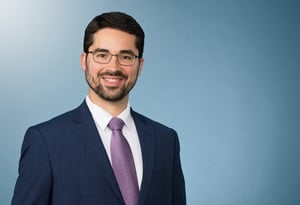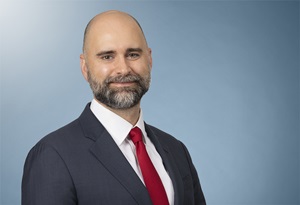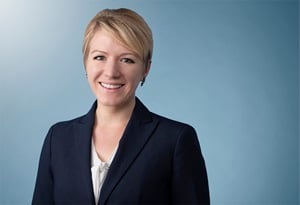Predicting the Enforcement Priorities of the Biden DOJ
With President Biden’s nomination of D.C. Circuit Judge Merrick Garland for U.S. attorney general proceeding toward confirmation in the Senate, the leader of the nation’s legal department is poised to change enforcement priorities and will seek to shift the public’s perception of federal law enforcement. Garland, who is viewed as politically neutral, will bring to the Department of Justice (DOJ) his decades of experience as both a high-level federal prosecutor and judge. He is known as a lawyer’s lawyer, level-headed and fair, and in his time as a prosecutor was known to ensure the facts supported the laws he prosecuted.
In his testimony before the Senate Judiciary Committee on Monday, Garland acknowledged his decades of experience, his commitment to impartiality, and his intention to lead the DOJ with the same integrity and professionalism he has maintained throughout his career in public service.
The selection of Garland signals a desire by President Biden to ensure the DOJ’s independence from the presidency. In announcing his selection of Garland, President Biden remarked, “We need to restore the honor, the integrity, the independence of the DOJ ….” President Biden went on to declare, “You won’t work for me . . . . You are not the president’s or the vice president’s lawyer. Your loyalty is not to me. It’s to the law, the Constitution.”
Garland affirmed President Biden’s remarks at his confirmation hearing, committing the role of attorney general as independent from that of the president and without presidential oversight into the DOJ’s investigations.
As part of his efforts to reshape the DOJ, President Biden has also asked the 57 remaining Trump-appointed U.S. attorneys to resign, which will usher in new leadership to U.S. attorneys’ offices across the country. However, the process of identifying, vetting and confirming nominees for U.S. attorney roles typically takes substantial time, and it will continue late into the year. Political observers will be keeping a particularly close eye on the Biden administration’s potential nominees for high-powered U.S. attorney’s offices, such as the Southern District of New York and the Northern District of Illinois. As the Biden administration identifies more nominees, a clearer picture of its general approach and localized priorities throughout the states will begin to emerge.
In the meantime, a number of offices are being led by acting U.S. attorneys appointed by the attorney general. The timing of Senate-confirmed appointments is uncertain as Senate Majority Leader Chuck Schumer will be balancing competing priorities with respect to allocation of Senate floor time to address, among other issues, budget reconciliation and confirming key executive branch appointments, including Cabinet-level positions. Judicial and U.S. attorney appointments require only a simple majority for confirmation. With the 50-50 split in the Senate, it is likely that with some confirmations Vice President Harris will be brought in to break the tie. The tenure of acting U.S. attorneys is set to expire 120 days following their appointments, after which the respective chief judges in the districts appoint the U.S. attorney by statute until the vacancy is filled.
In addition to constructing an independent and apolitical DOJ, the nomination of Garland, along with other top DOJ officials, provides critical insight into what the top enforcement priorities of the newly led DOJ may be.
Civil Rights
Civil rights enforcement and criminal justice reform will be a top priority for the Biden administration. President Biden has made this much clear, not only by nominating Garland to lead the DOJ, but also through his nomination of Vanita Gupta for associate attorney general. Gupta, who most recently worked as president and CEO of the Leadership Conference on Civil and Human Rights, served as the head of DOJ’s Civil Rights Division under President Obama. In addition, Ms. Gupta is a former legal director of the ACLU and has served as assistant counsel for the NAACP Legal Defense and Education Fund.
In her role, Gupta will likely bring a focus on critical civil rights issues such as voting rights and police reform.
At his confirmation hearing, Garland also expressed that civil rights enforcement is a high priority for him, both personally and professionally. Visibly emotional, Garland testified that he feels compelled to serve and pay back the country as attorney general because America took his family in and protected them from persecution when his grandparents fled anti-Semitism.
Garland further commented on his support of policies that ensure every American has an opportunity to vote, his commitment to addressing hate crimes and historical inequities, and his responsibility as attorney general in overseeing Ms. Gupta’s role in the Civil Rights Division.
Increased White Collar Enforcement
The appointment of Garland signals a stark contrast from the Trump administration with regard to white collar investigations and prosecutions. Under the Garland-led DOJ, environmental injustice, securities and financial fraud, and COVID-19 related fraud will likely be top priorities of the DOJ.
Environmental Injustice
We can expect to see a dramatic increase in environmental prosecutions under the Biden DOJ. During his presidential campaign, President Biden made clear that one of his top priorities would be increased environmental enforcement. Prosecutions of environmental crimes plummeted during the Trump administration, which led to a reported 70% decrease in criminal prosecutions under the Clean Water Act and a 50% decrease in prosecutions under the Clean Air Act.
In contrast to President Trump, President Biden has already taken steps to make good on his campaign promise of increased environmental prosecutions. On January 27, 2021, President Biden signed an “Executive Order on Tackling the Climate Crisis at Home and Abroad.” The order directs the attorney general to: (i) consider renaming the Environment and Natural Resources Division as the Environmental Justice and Natural Resources Division; (ii) develop “a comprehensive environmental justice enforcement strategy” in coordination with the EPA; and (3) “ensure comprehensive attention to environmental justice throughout the Department of Justice, including by considering creating an Office of Environmental Justice within the Department to coordinate environmental justice activities among DOJ components and United States Attorneys’ Offices nationwide.”
Garland’s record indicates that he will support such efforts. As a judge, Garland authored several opinions protecting the rule making and enforcement authority of federal agencies such as the EPA. At his confirmation, Garland refused to commit one way or the other on whether oil and gas companies that have denied the effects of climate change could be subject to prosecution.
Securities Enforcement
Increased regulations on the securities and financial services industry are likely to lead to an uptick in enforcement against the financial services sector. Following the resignation of SEC Chair Jay Clayton, President Biden announced the nomination of Gary Gensler as the next chair of the SEC. Gensler served as chairman of the Commodity Futures Trading Commission under the Obama administration following the 2008 financial crisis and helped implement regulations on the derivatives market. Contrary to Clayton, who rolled back regulations on the financial services industry, Gensler is expected to take a tough regulatory stance, which will likely lead to increased prosecutions.
Furthermore, in the wake of the economic downturn caused by the COVID-19 pandemic, the DOJ is likely to place an emphasis on consumer protection–related fraud. This may include restoring the Consumer Financial Protection Bureau, after it was largely dormant under President Trump.
COVID-Related Fraud
With the prospect of a new, large pandemic relief package on the horizon, businesses can expect to continue to see investigations and prosecutions related to fraudulent procurement and use of pandemic stimulus funds and loans. With such a large increase in government spending, fraudulent activity related to future stimulus bills is likely to rise. To combat this, the DOJ will likely increase False Claims Act investigations and productions.
In addition, DOJ can be expected to pursue actions related to counterfeit and unproven COVID-19 treatments.
Focus on Prosecuting Extremists
Following the January 6, 2021, insurrection at the Capitol, Garland made a pledge to fight the “evolving threat of violent extremism” as attorney general. Consistent with that pledge, Garland testified that his first priority as attorney general will be to meet with prosecutors and law enforcement to understand the additional resources needed to assist in the investigations into the insurrection.
In addition to his overall experience as a high-level prosecutor and federal judge, Garland’s background prosecuting domestic terrorism makes him well-suited to tackle the growing threat of white nationalism and right-wing extremism. Perhaps most notably, Garland led the prosecution of Timothy McVeigh and Terry Nichols in connection with the Oklahoma City bombing. Garland’s experience also includes leading the prosecutions of other high-profile domestic terrorists, such as Ted Kaczynski (the “Unabomber”) and Eric Rudolph (the “Olympic Park Bomber”).
Over the course of his confirmation hearing, Garland leaned on his experience in leading other high-profile domestic terrorist prosecutions as a starting point for addressing the complex issues surrounding the white nationalists and right-wing extremists participating in the January 6, 2021, insurrection.
President Biden has further demonstrated his focus on combating extremism by nominating Lisa Monaco as deputy attorney general. Monaco served in the Obama administration as an assistant attorney general for national security and as an adviser on counterterrorism.





